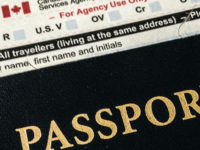The Canada Revenue Agency has obtained a federal court order requiring PayPal to hand over years of transactional information from all business accounts in Canada. The scope of the order is incredibly broad, covering any business account holder who sent or received a payment over a nearly four year period from January 1, 2014 to November 10, 2017. The information to be disclosed includes:

Wiertz Sebastien - Privacy by Sebastien Wiertz (CC BY 2.0) https://flic.kr/p/ahk6nh
Privacy
NAFTA and the Digital Environment: My Keynote on Striking a Fair Balance on Copyright and Digital Policy
Earlier this week, I had the opportunity to deliver a keynote lecture at American University, Washington College of Law on NAFTA and the digital environment. A video of the talk can be found here (my remarks start just after 11:40) and is embedded below.
Border and Airport Privacy: My Appearance Before the Standing Committee on Access to Information, Privacy and Ethics
The Standing Committee on Access to Information, Privacy and Ethics has been conducting a much-needed study on the privacy issues arising from the border and airports. The study has attracted considerable media attention, with the Privacy Commissioner of Canada warning about U.S. border phone searches and the CBSA promising to begin tracking cellphone searches. I appeared before the committee late last month alongside the Canadian Bar Association and privacy expert Kris Klein. The full transcript can be found here.
My opening remarks are posted below. I focused on four issues to consider in trying to address airport and border privacy concerns: Privacy Act reform, information sharing within government, the applicability of Charter rights at the border, and the role of the NAFTA negotiations.
Into the Breach: How Canada’s Security Breach Disclosure Regulations Fall Short
With security breaches regularly affecting millions (or even billions) of people, effective security breach disclosure rules are an essential part of a modern privacy law framework. It may surprise many to learn that Canada still does not have mandatory security breach disclosure rules that require companies to notify affected individuals in effect. Rules were passed in 2015, but the accompanying regulations were puzzlingly slow to emerge. The government finally released proposed regulations late in the summer with a consultation that closed earlier this week. My submission, which focused on implementation, content of notices, and proposed “indirect” notification, is posted below.
Canada’s NAFTA IP and E-commerce Priorities: My Appearance Before the Standing Committee on International Trade
The House of Commons Standing Committee on International Trade has been conducting hearings on the NAFTA negotiations. I appeared before the committee yesterday on a panel that included the dairy industry, food and beverage sector, and my comments on IP and e-commerce. The MPs showed considerable interest in both IP and e-commerce, asking questions about notice-and-notice, fair use, copyright balance, the public domain, and the privacy implications of the e-commerce chapter. My opening remarks are posted below.











